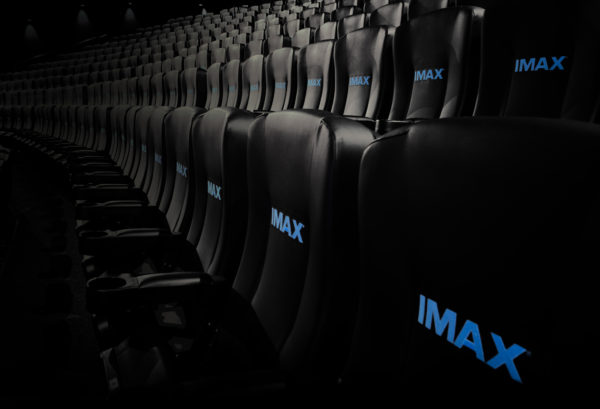As in their last earnings call, Imax spent the bulk of their Q4 2020 catch-up focusing on the company’s success in Asian markets, particularly China—where the theatrical industry has underdone an impressive recovery following their Covid-induced shutdown through much of 2020.
With a full slate of Hollywood films still on the horizon, Chinese moviegoers continue to flock to local content—most recently Detective Chinatown 3, which gave Imax its highest Chinese New Year weekend last month, up 45 percent from the existing 2019 record. Over the entire New Year holiday period, noted CEO Richard Gelfond, the Chinese market earned $1.2B in box office, up 32 percent over 2019. Since the earnings call, Imax scored their highest opening day for a local-language title in Japan with Shin Evangelion, the third in a five-picture deal with Toho Pictures.
Looking back at Q4 2020, China’s national holiday in October saw Imax’s box office increase 23 percent from the same period the previous year in that country; in December, Imax’s Chinese box office was up 28 percent year-over-year. Looking at 2020 as a whole, Imax box office for local Chinese content was surpassed only by 2019—which, notes Gelfond, “is remarkable given theaters were closed for more than half of the year. Our average daily box office in China recovered to approximately 80 percent of second half 2019 levels, despite a continued 75 percent capacity limitation in Chinese theaters and an almost complete lack of new Hollywood blockbuster releases.”
Closing out 2020, 99.7 percent of Imax’s screens were open in China, compared to approximately 70 percent of their global network.
In the second half of 2020, Imax increased its market share in China from 2.8 percent to 3.6 percent despite making up only 1 percent of the total screens. Expansion plans are still in the works, both in China and elsewhere. Imax installed 71 new systems globally in 2020 and closed out the year with a backlog of 527. Over the year, agreements for 65 new Imax systems were signed.
The rebound experienced by China in the second half of 2020—and the subsequent box office records broken by Imax, which has invested heavily in local content—was not enough to compensate for an overall disastrous year for the industry, with Imax’s total revenue down 65.4 percent compared to 2019. However, notes Gelfond, “Given strong demand for The Imax Experience in Asia, the extremely promising pipeline of Hollywood blockbusters, and the accelerating pace of vaccinations in North America and Europe, we remain confident and optimistic that the global film industry is poised for a strong and sustainable recovery in the second half of 2021.”
Moving into what is hoped to be the beginning of a worldwide recovery period, with major Hollywood blockbusters returning in May and on into the summer, Gelfond expressed confidence that the trend towards decreased theatrical windows—with the “general view now that windows for blockbusters is going to be around 30 to 45 days”—would not have a negative effect on Imax’s bottom line. “We play [these films] for only two weeks,” he noted, “So I don’t think those windowing patterns are going to change people going to Imax.”
Rather, Gelfond speculates that studios will expend more effort eventizing their films’ shorter theatrical runs in order to maximize profit before they hit digital, which could end up benefiting Imax. “There’s been studies done over years that show people who see a movie in Imax like it better. They rate it higher. The brand association as well as the experience make it more valuable. So I think, as windows get shorter, studios and talent are going to be more focused on how to create an event around their movies and how to make their movies stand out from the clutter and be really special.”



Share this post